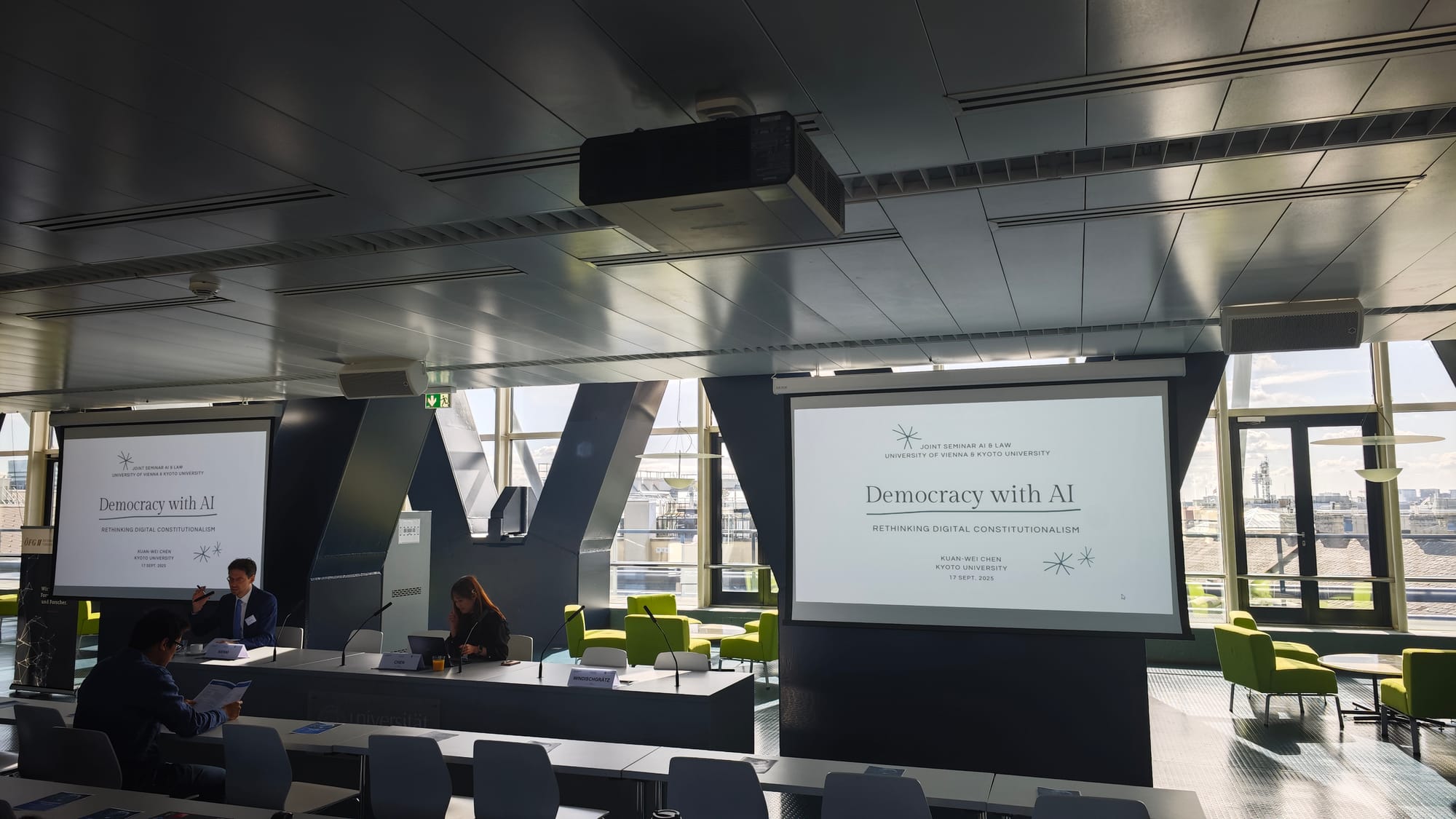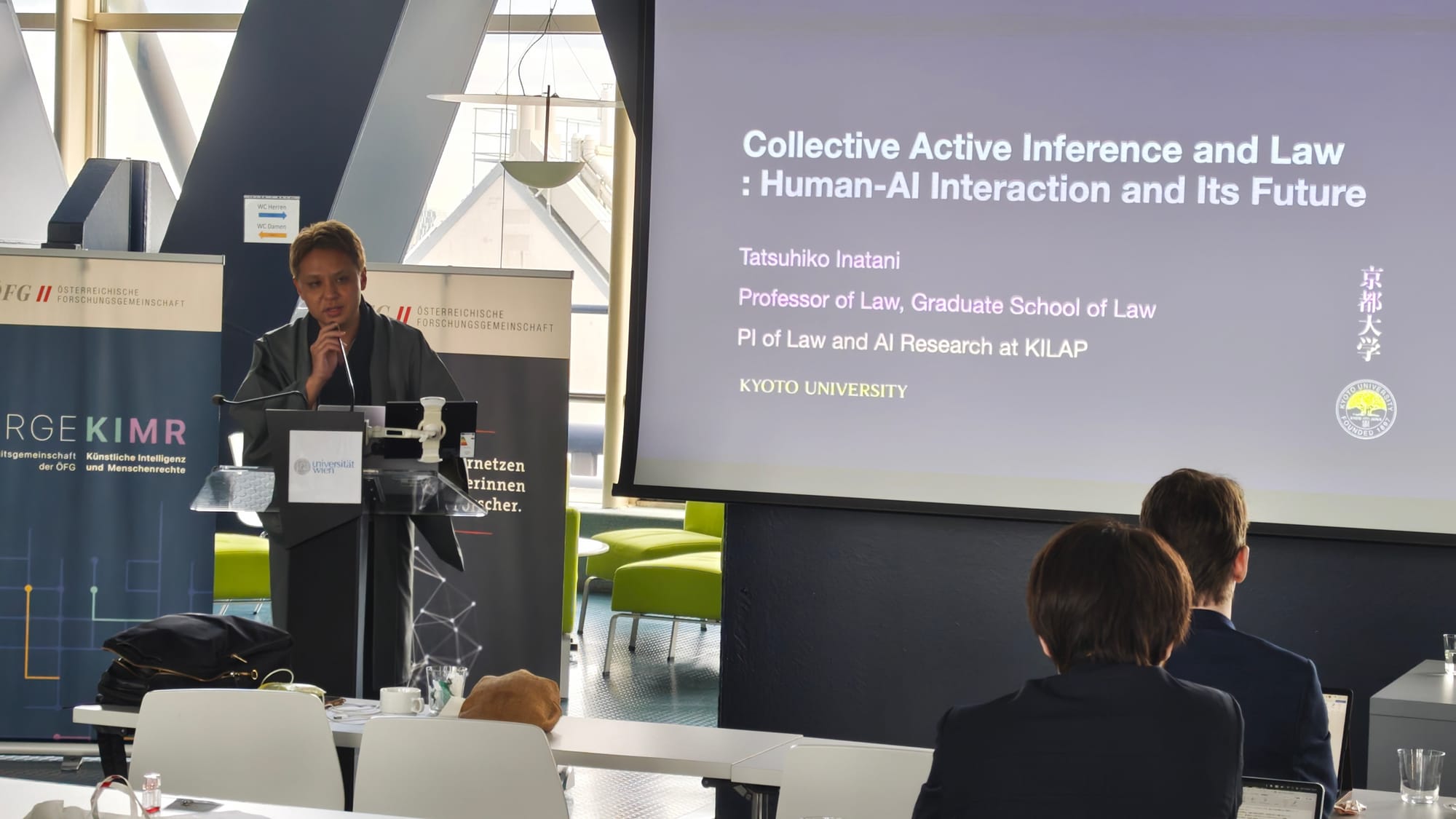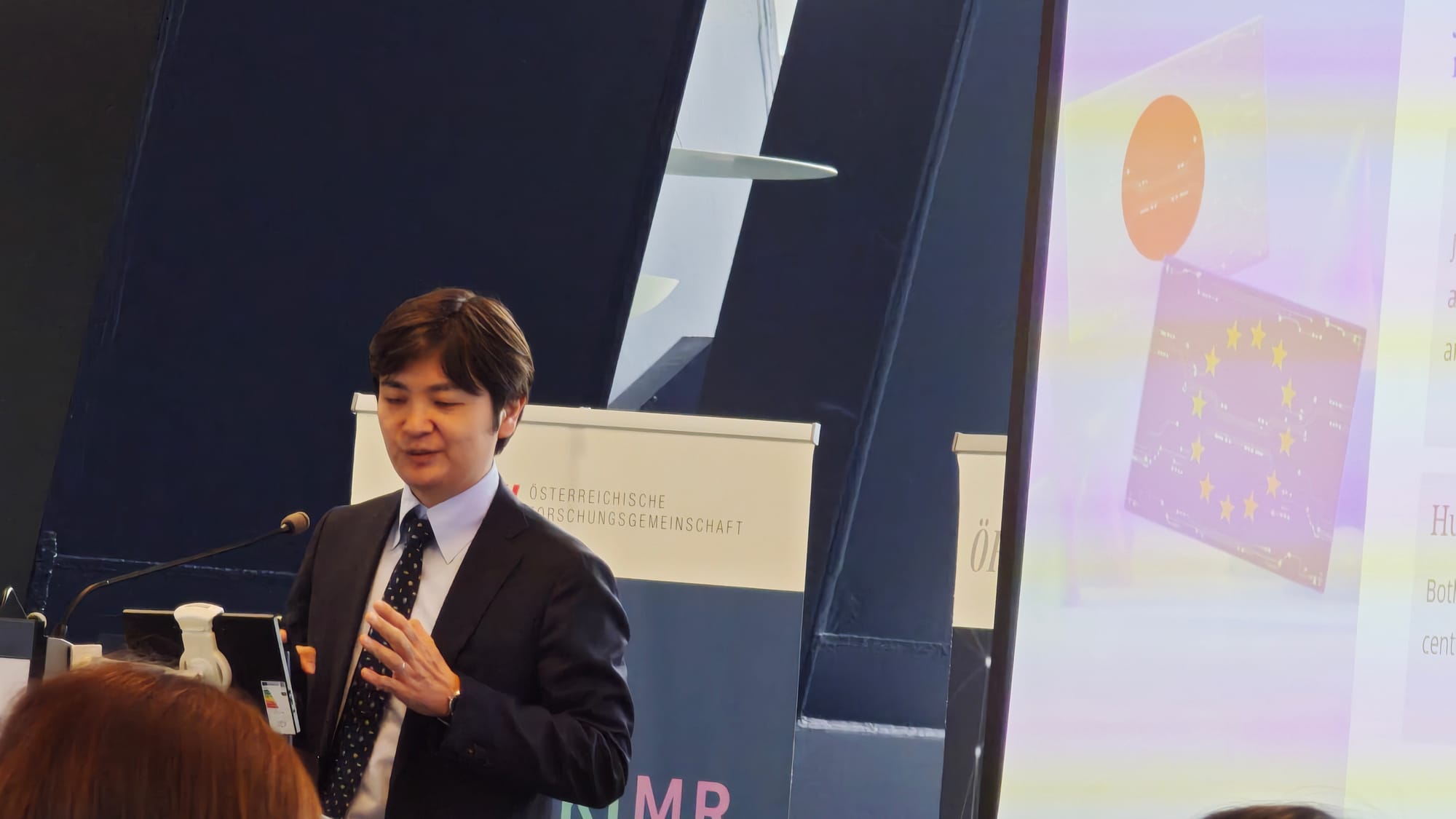Week 39/2025
What is closing you in?

NSFW
Thie week's song is - again - from Sophie Zelmani. I haven'f finished my bingehearing of her songs yet.
I am in particular impresse about how masterfully she decides not to use the whole volume of her voice. The song is somehow comforting in all this noise with meetings and conferences and papers and discussions in early autumn.
Here's a nice text and an interview with her about her work. And here's a rather recent live version of the song (poor sound quality, though).
Retrospect
Electronic archives
I had the privilege to be grilled by a group of more than 70 experts on very difficult questions of electronic archiving in an event organised by the Austrian Association of Librarians..

Two lessons I learned there:
- Two thirds of the staff are already confronted in daily practice with (legal) consequences of electronic archives. The topics appear in daily practice and are not just academic speculations.

- Main areas of concern are data protection and copyright which is not astonishing. It's therefore rather unfortunate that, fram a legal academic perspective, IP and IT (still) do not talk with each other in sufficient detail.

Kyoto and AI
There was a two day conference together with Kyoto University on AI and law, organised on UNIVIE's side by Prof. Dr. Iris Eisenberger and Prof. Dr. Michaela Windisch-Graetz. I enjoyed the Austrian and, perhaps even more, the Japanese contributions, contextualising, once again, the mainstream eurocentric AI-act driven view on AI technology.

I was, in particular, fascinated by the presentation given by Professor Tatsuhiko Inatani.

Inatani elaborated convincingly how context-dependent fundamental values are, how different they are in Western and Eastern cultures and how much impact these values and their differences have on legislative decisions in AI regulation. Every time I listen to him, a new door opens.
Also the contribution of Professor Hiroki Habuka was excellent and highly relevant for my work. He highlighted convincingly similarities and differences between European and Japanese AI legislation, discussing, inter alia, Japan's AI promotion act from earlier this year.

In my own presentation I discussed a very interesting interview with a former EU-bureaucrat who was one of the authors of the first AI-Act draft.

The picture this ex-official draws on the law making process in this case is - distressing.
The most outstanding highlight was a reception we were kindly invited to by the Japanese ambassador in Vienna, His Excellency Kiminori IWAMA, into his personal residence. Everything was so very impressive there. The timing, the food, the art, the speeches, everything - just perfect and breathtakingly beautiful. It was a moment in which I felt so very privileged as an academic and as an admirer of Japanese culture.
One of the things I learned there was the custom of Tejime (手締め) - a ritualised hand clapping to indicate the ending of a ceremony (or a reception, in this case). We did, as I know now, an Itchō-jime (一丁締め) - and no exlamations were yelled ;-).
Privacy Ring
Privacy Ring is a conference series taling place in the DACH-area twice a year. This week iot was in Vienna again, hosted by "our" LLM-programme (which is why I owe Markus a beer for all the organisational work on this) and chaired by Judith Leschanz and Iris Phan (who also reported on the event via LinkedIn).
I spoke (briefly) about the Federal Critical Infrastructures Law that was debated in a parliamentary committee on the very same day.
I was then very impressed by the presentation of the head of Austria's data protection authority, Dr. Matthias Schmidl. He was surprisingly open about the authority's deteriorating budgetary situation and the negative impact this has on their work. There is also an article on the problem in Der Standard.
Prospect
Beck
I will be in Munich for two days and will meet representatives from the publisher Beck Verlag. This has twoo reasons:
- We will start working on a possible fourth edition of this book:

- I am very proud to announce (and you are the first to hear) that I was invited (and accepted the offer) to become one of the editors ("Mitglied der Schriftleitung") of one of Becks new journals: KIR. 'KIR' doesn't stand for Baby Schimmerlos here, but for "Künstliche Intelligenz und Recht".

I am very much looking forward to cooperating (in some cases: again) with my fellow co-editors Prof. Dr. Louisa Specht-Riemenschneider, Prof. Dr. Christian A. Heinze, Prof. Dr. Christoph Sorge and Prof. Dr. Hannah Ruschemeier. If you have content that migh be of interest for the journal, please do feel warmly invited to contact me.
May I also remind you that Hannah Ruschemeier was a guest in #arsboni about a year ago.
Interestingly, Beck is currently seeing some public pushback in their AI-policy against authors (I did not sign the contract amendmends either).

Jahrestagung Datenschutzrecht
Another law publisher - MANZ - hosts a very interesting event organised by Dr. Gerald Trieb on Monday I have the pleasure to contribute to.

Here's the full programme:

This is a paid event, no stream, registration still possible.
Look and Feel
Not too much to report here, unfortunately, this week (it's autumn, you know).
I started reading this book (but havent read more than 20 pages yet, so too early to tell), thanks, again, to a recommendation of Buchhandlung Riedl

an am watching a Netflix series late night when returning home and too tired to do anything useful:

Not supersuperfunny, but fit for purpose.
Daisy
loves to explore late summer meadows.

Have a wonderful week!
Kind regards
Nikolaus (Forgó)




